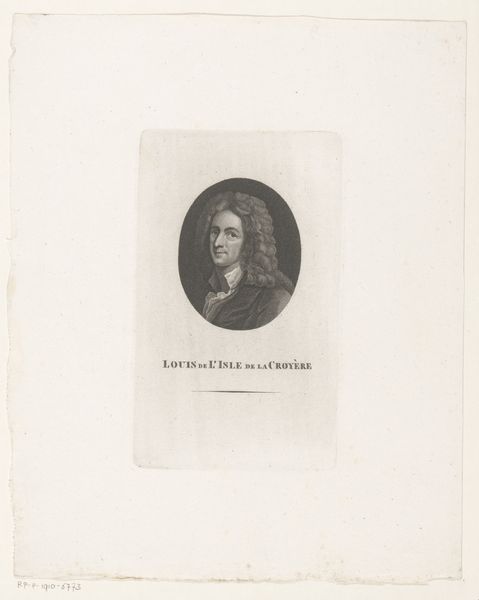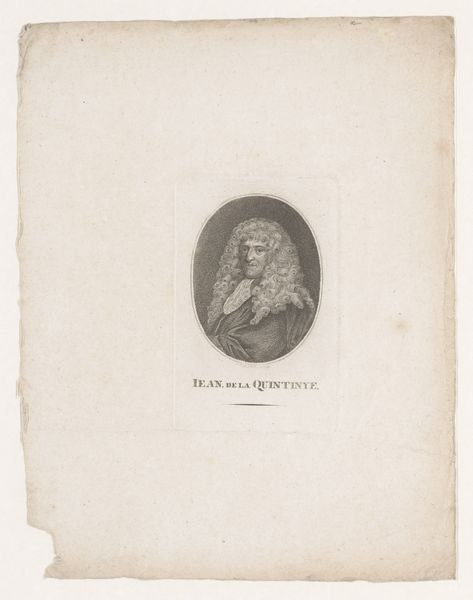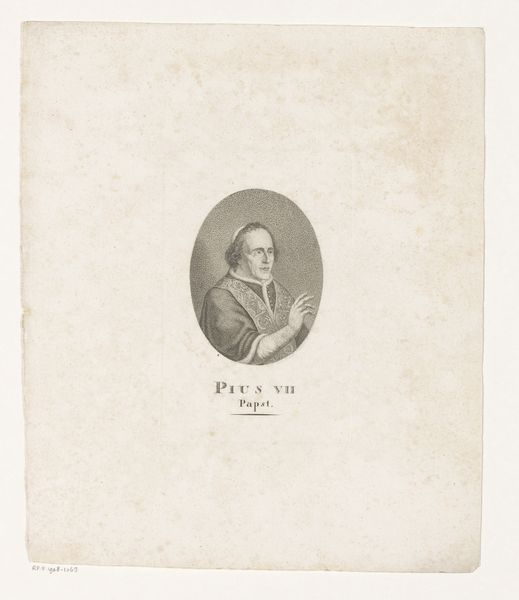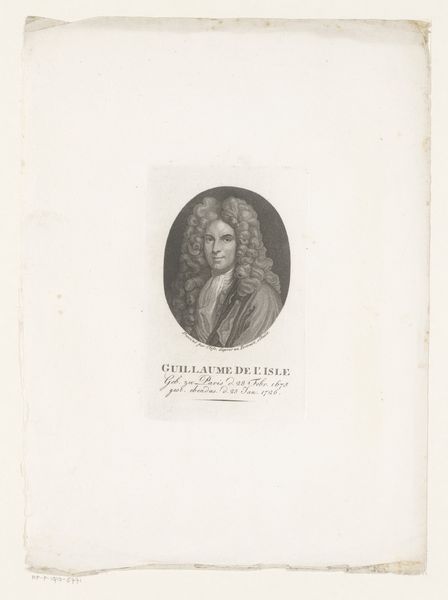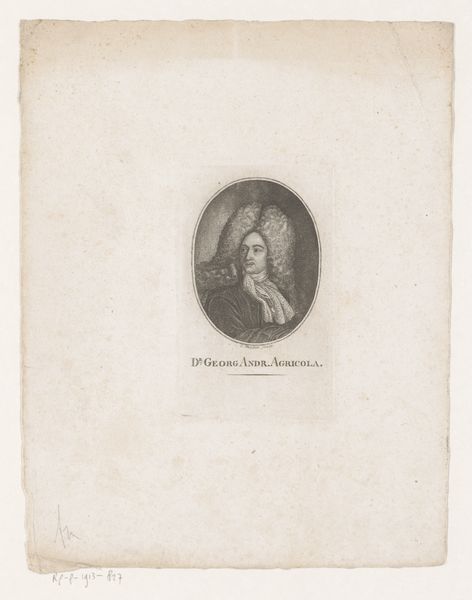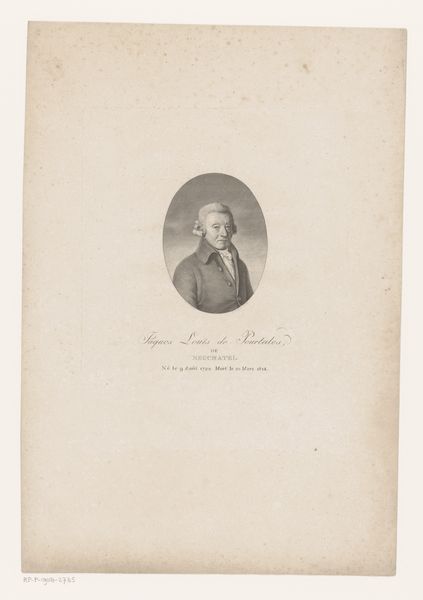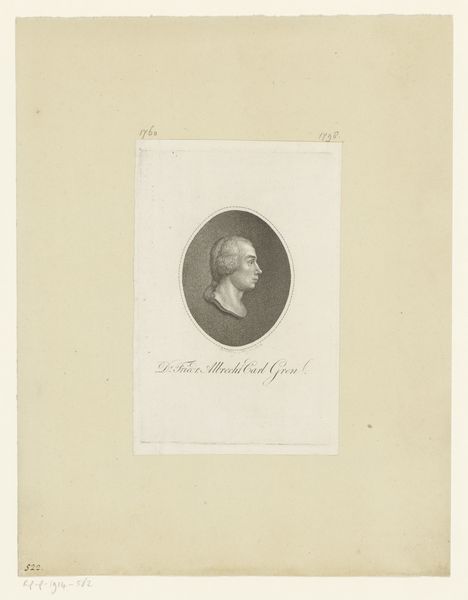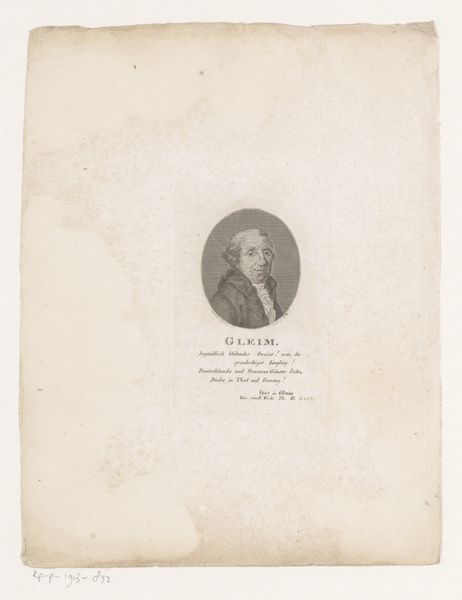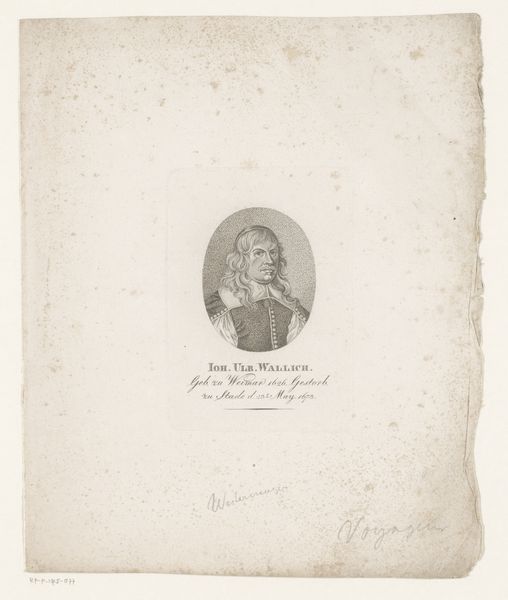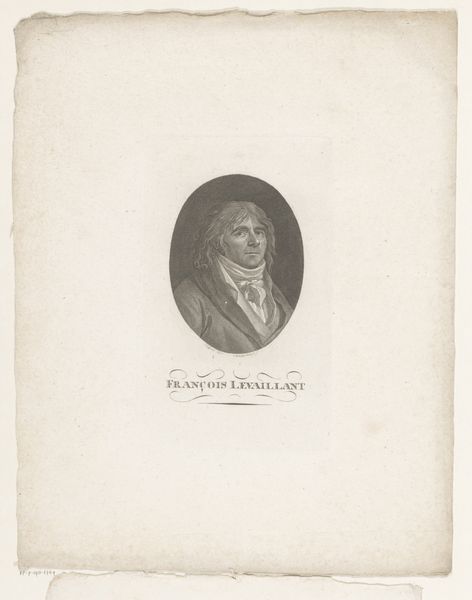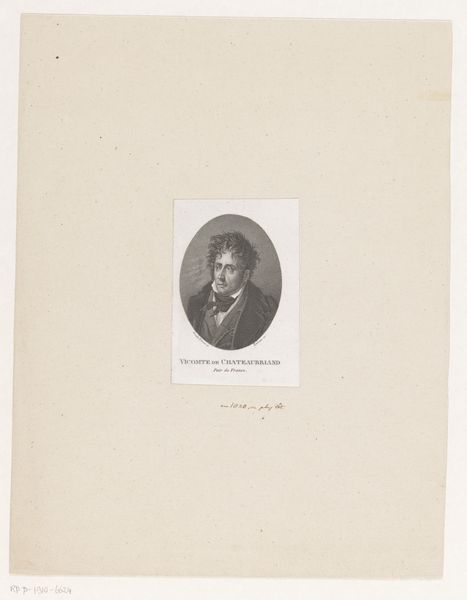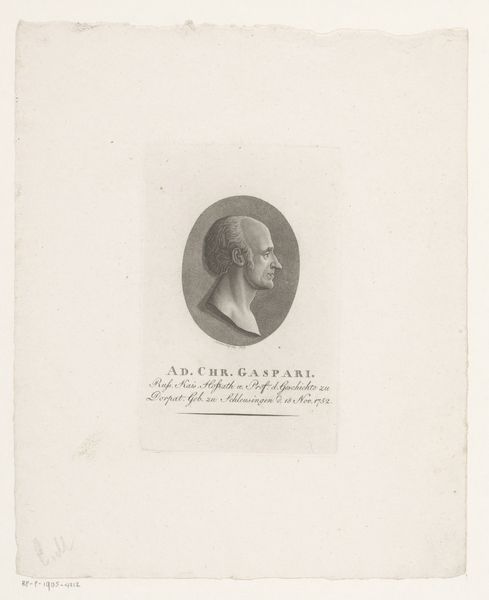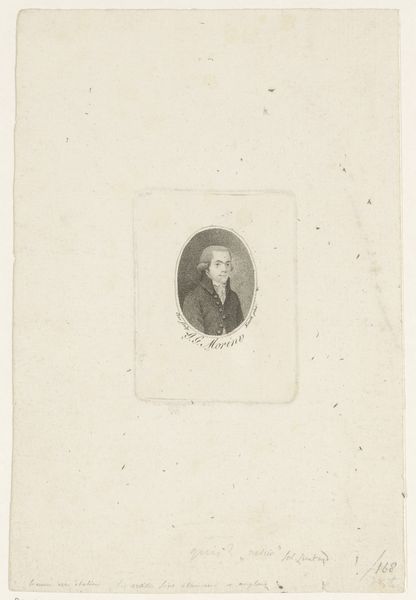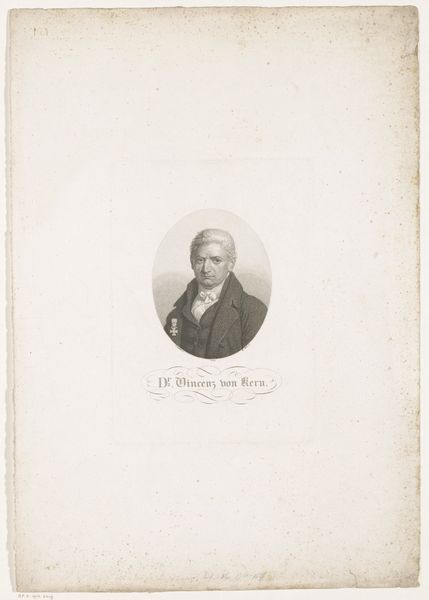
Dimensions: height 123 mm, width 80 mm
Copyright: Rijks Museum: Open Domain
Konrad Westermayr made this portrait of Simon Claude Delisle using etching and possibly other techniques. The work is interesting to consider in light of the Enlightenment values of the late eighteenth and early nineteenth centuries. The portrait evokes the aesthetic of the period: its delicate lines and oval frame, a classical form, give the sitter an air of refinement. And yet, portraiture itself was changing. No longer solely for the aristocracy, portraits were increasingly commissioned by members of the growing merchant class. The print was made in Germany. To understand this piece better, one might begin by researching Delisle himself and the specifics of German printmaking at the time. Who was Westermayr’s audience? What statements were being made about social class via printed imagery? Thinking about art in relation to its social and institutional context can reveal a great deal about the period in which it was made.
Comments
No comments
Be the first to comment and join the conversation on the ultimate creative platform.
